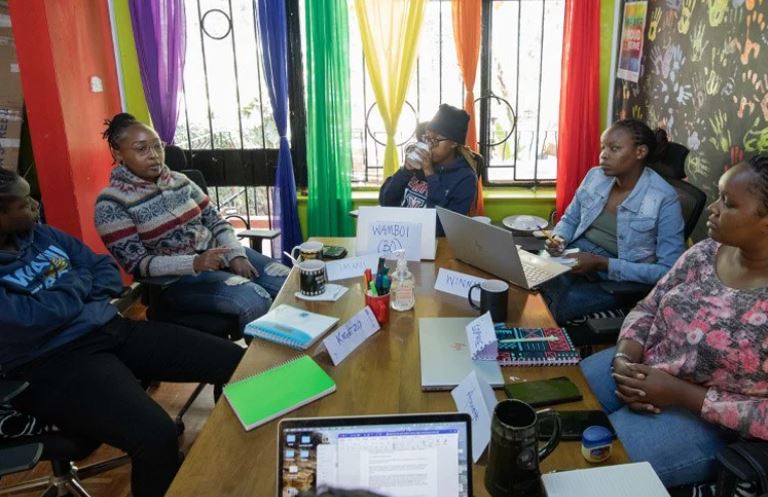
On Tuesday, the Supreme Court affirmed the National Gay and Lesbian Human Rights Commission (NGLHRC)’s right to be registered as an NGO in Kenya.
In doing so, the Apex court dismissed an appeal by Homa Bay MP Peter Kaluma challenging the court’s landmark ruling for the LGBTQI+ community. Kaluma had asked the Supreme Court to review its decision on the definition of sex.
In February of this year, the Supreme Court, by a majority of three judges against two, ruled that Kenya’s NGO Coordinating Board was wrong to block the registration of the NGLHRC, thereby granting the LGBTQI+ community in Kenya formal recognition as an organization.
The Board had an issue with NGLHRC because their name included the words ‘gay’ and ‘lesbian.’
Justices Philomena Mwilu (Deputy Chief Justice), Smokin Wanjala, and Njoki Ndung’u noted that restricting the right to associate, including denying registration to an association, solely based on sexual orientation was unconstitutional. They deemed the board’s decision to deny registration to an LGBTQ+ group as “unreasonable and unjustified.”
“Such action is retrogressive,” the Judges ruled.
But Kaluma appealed, asking the Court to halt the orders which had compelled NGO Coordination Board to register members of the LGBTQI+ community.
He also asked the court to reconsider and overturn the judgment dated February 24, 2023, in which, at paragraph 79, the Judges concluded that the term “sex” in Article 27(4) of the Constitution encompasses sexual orientation of any gender, including heterosexual, lesbian, gay, intersex, or any other sexual orientation.
While dismissing Kaluma’s appeal on Tuesday, the five-judge bench, presided over by Deputy Chief Justice Philomena Mwilu, stated that the court does not have the authority to sit on appeal or review its own decisions.
They explained that the Supreme Court can only review its decisions in accordance with the procedures outlined in Section 21A of the Supreme Court Act. These circumstances include situations where the judgment, ruling, or order is considered a nullity due to being issued by an incompetent court, or if the court was deceived or misled into making the judgment, ruling, or order under the false belief that the parties had given their consent.
“The applicant has not demonstrated how this matter conforms to the specific parameters enumerated under Section 21A of the Supreme Court Act,” the court said.
The Judges further stated that Kaluma lacked the standing to seek a review since he was not a party to the original case’s proceedings. They ruled that his case directly affected the fundamental integrity of the previously adjudicated lawsuit.
The Supreme Court pointed out that given Kaluma’s status as both an Advocate of the High Court and a Member of Parliament, he should have been aware that his application for review was misguided or misconceived from a legal perspective.
“Consequently, we did, by a Majority, agree with the findings of the High Court, and the Court of Appeal that LGBTIQ persona have a right to freedom of association, which includes the right to form an association of any kind,” the Supreme Court affirmed.
The court also ordered Peter Kaluma to bear the costs of the appeal.









